Abdul Hamid Nachan, father of Saquib Nachan, the man alleged to have been involved in the Mulund blasts, is an angry man.
After every bomb blast around Mumbai, the police make a beeline for Padgha village, 60km away. The village is trying to erase the ignominy of being seen as the hub of terror activities. Neeta Kolhatkar reports
Abdul Hamid Nachan, father of Saquib Nachan, the man alleged to have been involved in the Mulund blasts, is an angry man. The 83-year-old has filed a complaint against the home department in Bhiwandi court, challenging allegations that he had gone to France to raise funds for SIMI. In Hamid’s absence, intelligence officials came by, making inquiries about his visit, and are said to have alerted the home ministry about his supposed fund-raising trip.
“My daughter lives in Munich and I had gone to visit her,” an indignant Hamid told DNA. “On my return, I heard about the intelligence officers’ visit. I have filed a complaint with the court, asking the home department to explain the basis for their allegations. I am confident they will fail to do so, since it has been over a month. I demanded financial compensation and a public apology.”
Clearly, Hamid’s anger spills over to the rest of the village as well. Padgha residents are collectively upset about how they are constantly under the scanner. Every time there is a blast anywhere in the country, they are subject to suspicion and enquiries. Some vent anger to false reports of combing operations. Although the local police station remains closed for most of the day, it appears Padgha is being watched by the higher authorities.
“Police and intelligence authorities keep focussing on our village,” says Naseer Mullah, a social worker and businessman. “They call it a ‘sensitive’ area. But they have to tell us why they’ve created a suspicious environment.
Contd, p4
He adds: “In 2003, my son Atif and four others, including Saquib, were arrested under POTA for their alleged involvement in bomb blasts [only one of them has been released]. The police have been unfair to us all along.”
The local police, however, say they know nothing about the so-called intelligence alerts. Although superintendent of police Naval Bajaj declines comment about this, he denies any harassment. “These allegations of harassment are unfounded. We have not picked up anyone in the last three years,” Bajaj says.
But Padgha residents say the police personally make inquiries asking for the whereabouts of people they have on their list. Sometimes they call people over for meetings, depending on the nature of the enquiry. Apparently intelligence authorities had asked the home department to increase vigilance at Padgah after even the recent Bangalore and Ahmedabad blasts. They also alleged the village was being frequented by outsiders, and that SIMI meetings had begun to take place here. “We received information that the meetings now take place in the timber yards instead of the masjids,” an intelligence officer told DNA, requesting anonymity. “SIMI activists are working clandestinely.”
When DNA spoke to a former SIMI activist, he said the SIMI office in the village has been sealed since 2001, and there have been no activities since. He said the authorities have no idea about the organisation or its functioning. “They should know that anyone who crosses the age of 30, ceases to be a SIMI member. The people they claim are activists are all over 40,” he added. “We have been victimised because we raised our voices against human rights violations and against the demolition of the Babri Masjid in the form of demonstrations. After the government banned our organisation in 2001, the group has disintegrated. Where is the question of us meeting again?”
The village still does not have pucca roads or a drinking water facility, except for wells. Another village close by, which comprises members of a community different from Padgha residents, is said to be more developed, which also makes the latter resentful.
“We do not differentiate between villages on the basis of religion. We are only concerned about who might be harbouring criminals. The district authorities say the police have intelligence information about who these villagers might be, though I am not the right person to comment about this,” says district collector SS Zande.
Part of Padgha’s anger at being tagged a village with terror ties may have to do with the fact that it is prosperous and educated, and thereby an unlikely ground for breeding terrorists. Most people have a good income from the timber trade and the village, as a whole (including some Dalit families) lays so much of emphasis on education that it is at a remarkable 85 per cent. Ironically, say the villagers, this has probably gone against them. “We are all educated and encourage our children to study. Everyone can speak Konkani, Hindi, Urdu and Marathi, besides English. We are a prosperous village, and the police can’t bear to see that,” says this Subhan Deokar, a village elder.
![submenu-img]() Balancing Risk and Reward: Tips and Tricks for Good Mobile Trading
Balancing Risk and Reward: Tips and Tricks for Good Mobile Trading![submenu-img]() Balmorex Pro [Is It Safe?] Real Customers Expose Hidden Dangers
Balmorex Pro [Is It Safe?] Real Customers Expose Hidden Dangers![submenu-img]() Sight Care Reviews (Real User EXPERIENCE) Ingredients, Benefits, And Side Effects Of Vision Support Formula Revealed!
Sight Care Reviews (Real User EXPERIENCE) Ingredients, Benefits, And Side Effects Of Vision Support Formula Revealed!![submenu-img]() Java Burn Reviews (Weight Loss Supplement) Real Ingredients, Benefits, Risks, And Honest Customer Reviews
Java Burn Reviews (Weight Loss Supplement) Real Ingredients, Benefits, Risks, And Honest Customer Reviews![submenu-img]() Gurucharan Singh is still unreachable after returning home, says Taarak Mehta producer Asit Modi: 'I have been trying..'
Gurucharan Singh is still unreachable after returning home, says Taarak Mehta producer Asit Modi: 'I have been trying..'![submenu-img]() RBSE 12th Result 2024 Live Updates: Rajasthan Board Class 12 results DECLARED, get direct link here
RBSE 12th Result 2024 Live Updates: Rajasthan Board Class 12 results DECLARED, get direct link here![submenu-img]() IIT graduate Indian genius ‘solved’ 161-year old maths mystery, left teaching to become CEO of…
IIT graduate Indian genius ‘solved’ 161-year old maths mystery, left teaching to become CEO of…![submenu-img]() RBSE 12th Result 2024 Live Updates: Rajasthan Board Class 12 results to be announced soon, get direct link here
RBSE 12th Result 2024 Live Updates: Rajasthan Board Class 12 results to be announced soon, get direct link here![submenu-img]() Meet doctor who cracked UPSC exam to become IAS officer but resigned after few years due to...
Meet doctor who cracked UPSC exam to become IAS officer but resigned after few years due to...![submenu-img]() IIT graduate gets job with Rs 45 crore salary package, fired after few years, buys Narayana Murthy’s…
IIT graduate gets job with Rs 45 crore salary package, fired after few years, buys Narayana Murthy’s…![submenu-img]() DNA Verified: Is CAA an anti-Muslim law? Centre terms news report as 'misleading'
DNA Verified: Is CAA an anti-Muslim law? Centre terms news report as 'misleading'![submenu-img]() DNA Verified: Lok Sabha Elections 2024 to be held on April 19? Know truth behind viral message
DNA Verified: Lok Sabha Elections 2024 to be held on April 19? Know truth behind viral message![submenu-img]() DNA Verified: Modi govt giving students free laptops under 'One Student One Laptop' scheme? Know truth here
DNA Verified: Modi govt giving students free laptops under 'One Student One Laptop' scheme? Know truth here![submenu-img]() DNA Verified: Shah Rukh Khan denies reports of his role in release of India's naval officers from Qatar
DNA Verified: Shah Rukh Khan denies reports of his role in release of India's naval officers from Qatar![submenu-img]() DNA Verified: Is govt providing Rs 1.6 lakh benefit to girls under PM Ladli Laxmi Yojana? Know truth
DNA Verified: Is govt providing Rs 1.6 lakh benefit to girls under PM Ladli Laxmi Yojana? Know truth![submenu-img]() Urvashi Rautela mesmerises in blue celestial gown, her dancing fish necklace steals the limelight at Cannes 2024
Urvashi Rautela mesmerises in blue celestial gown, her dancing fish necklace steals the limelight at Cannes 2024![submenu-img]() Kiara Advani attends Women In Cinema Gala in dramatic ensemble, netizens say 'who designs these hideous dresses'
Kiara Advani attends Women In Cinema Gala in dramatic ensemble, netizens say 'who designs these hideous dresses'![submenu-img]() Influencer Diipa Büller-Khosla looks 'drop dead gorgeous' in metallic structured dress at Cannes 2024
Influencer Diipa Büller-Khosla looks 'drop dead gorgeous' in metallic structured dress at Cannes 2024![submenu-img]() Kiara Advani stuns in Prabal Gurung thigh-high slit gown for her Cannes debut, poses by the French Riviera
Kiara Advani stuns in Prabal Gurung thigh-high slit gown for her Cannes debut, poses by the French Riviera![submenu-img]() Heeramandi star Taha Shah Badussha makes dashing debut at Cannes Film Festival, fans call him ‘international crush’
Heeramandi star Taha Shah Badussha makes dashing debut at Cannes Film Festival, fans call him ‘international crush’![submenu-img]() Haryana Political Crisis: Will 3 independent MLAs support withdrawal impact the present Nayab Saini led-BJP government?
Haryana Political Crisis: Will 3 independent MLAs support withdrawal impact the present Nayab Saini led-BJP government?![submenu-img]() DNA Explainer: Why Harvey Weinstein's rape conviction was overturned, will beleaguered Hollywood mogul get out of jail?
DNA Explainer: Why Harvey Weinstein's rape conviction was overturned, will beleaguered Hollywood mogul get out of jail?![submenu-img]() What is inheritance tax?
What is inheritance tax?![submenu-img]() DNA Explainer: What is cloud seeding which is blamed for wreaking havoc in Dubai?
DNA Explainer: What is cloud seeding which is blamed for wreaking havoc in Dubai?![submenu-img]() DNA Explainer: What is Israel's Arrow-3 defence system used to intercept Iran's missile attack?
DNA Explainer: What is Israel's Arrow-3 defence system used to intercept Iran's missile attack?![submenu-img]() Gurucharan Singh is still unreachable after returning home, says Taarak Mehta producer Asit Modi: 'I have been trying..'
Gurucharan Singh is still unreachable after returning home, says Taarak Mehta producer Asit Modi: 'I have been trying..'![submenu-img]() ‘Jo mujhse bulwana chahte ho…’: Angry Dharmendra lashes out after casting his vote in Lok Sabha Elections 2024
‘Jo mujhse bulwana chahte ho…’: Angry Dharmendra lashes out after casting his vote in Lok Sabha Elections 2024![submenu-img]() Deepika Padukone spotted with her baby bump as she steps out with Ranveer Singh to cast her vote in Lok Sabha elections
Deepika Padukone spotted with her baby bump as she steps out with Ranveer Singh to cast her vote in Lok Sabha elections![submenu-img]() Jr NTR surprises fans on birthday, announces NTR 31 with Prashanth Neel, shares details
Jr NTR surprises fans on birthday, announces NTR 31 with Prashanth Neel, shares details ![submenu-img]() 86-year-old Shubha Khote wins hearts by coming out to cast her vote in Lok Sabha elections, says meant to inspire voters
86-year-old Shubha Khote wins hearts by coming out to cast her vote in Lok Sabha elections, says meant to inspire voters![submenu-img]() Watch viral video: Man gets attacked after trying to touch ‘pet’ cheetah; netizens react
Watch viral video: Man gets attacked after trying to touch ‘pet’ cheetah; netizens react![submenu-img]() Real story of Lahore's Heermandi that inspired Netflix series
Real story of Lahore's Heermandi that inspired Netflix series![submenu-img]() 12-year-old Bengaluru girl undergoes surgery after eating 'smoky paan', details inside
12-year-old Bengaluru girl undergoes surgery after eating 'smoky paan', details inside![submenu-img]() Viral video: Pakistani man tries to get close with tiger and this happens next
Viral video: Pakistani man tries to get close with tiger and this happens next![submenu-img]() Owl swallows snake in one go, viral video shocks internet
Owl swallows snake in one go, viral video shocks internet









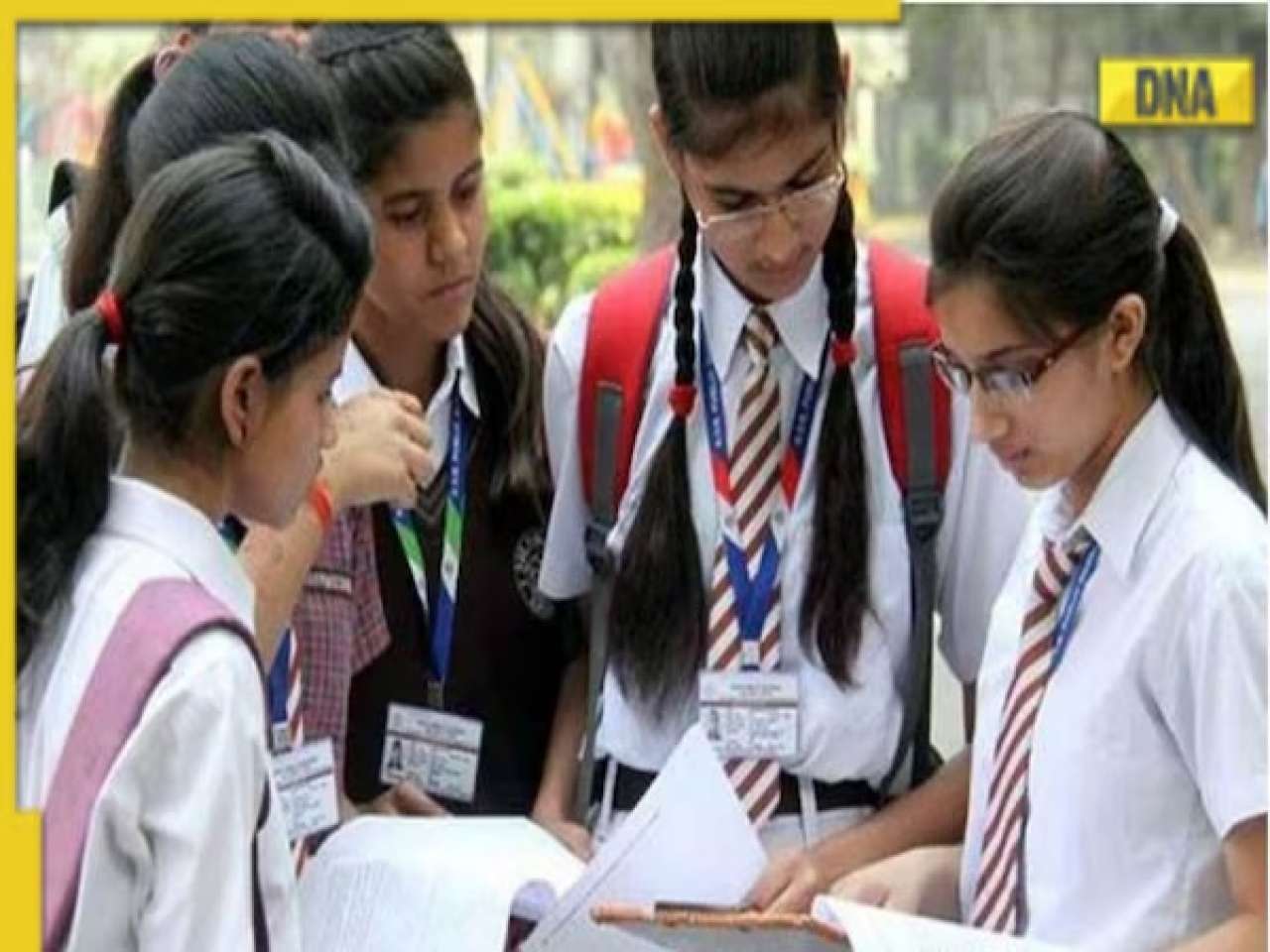

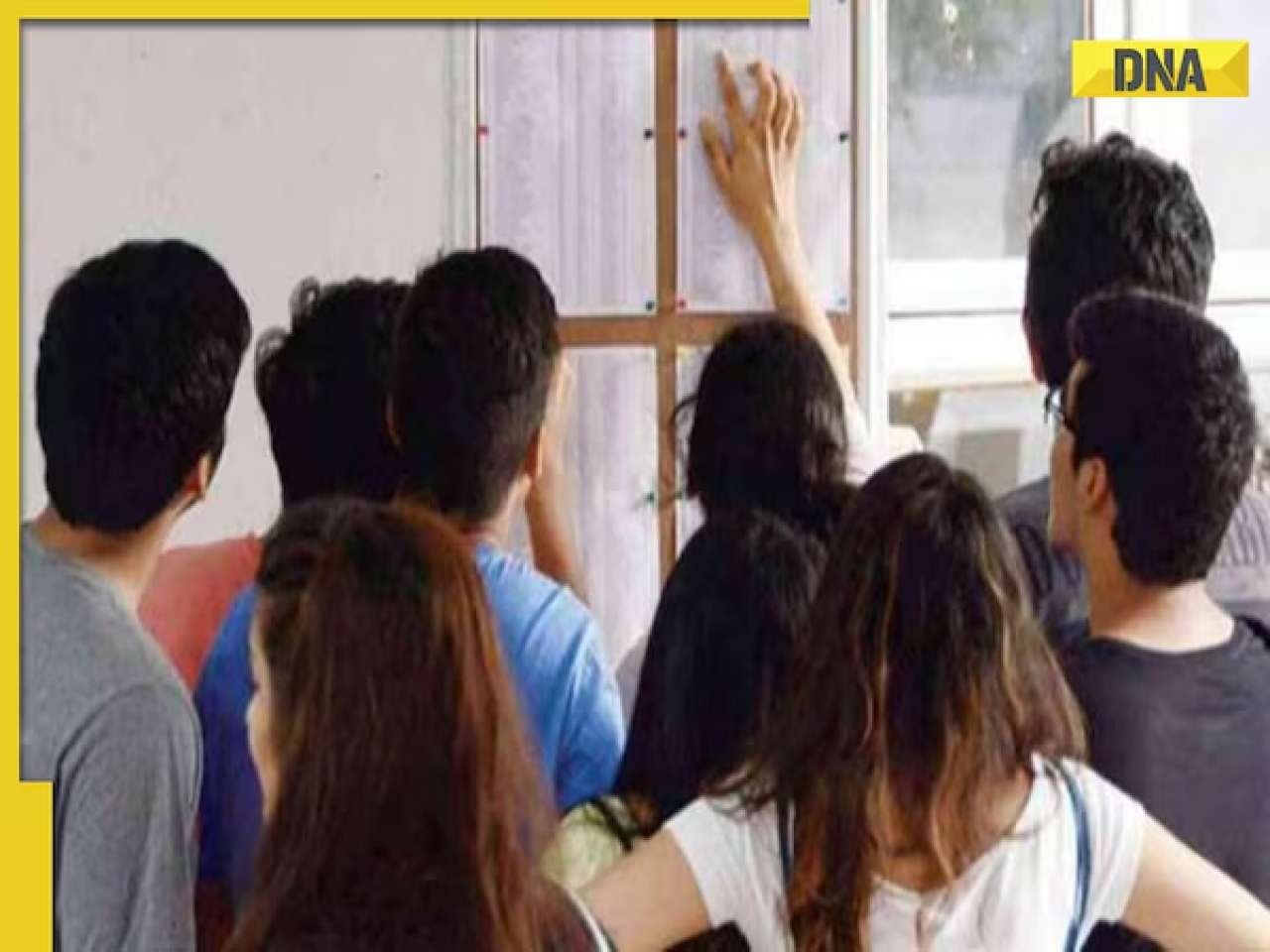
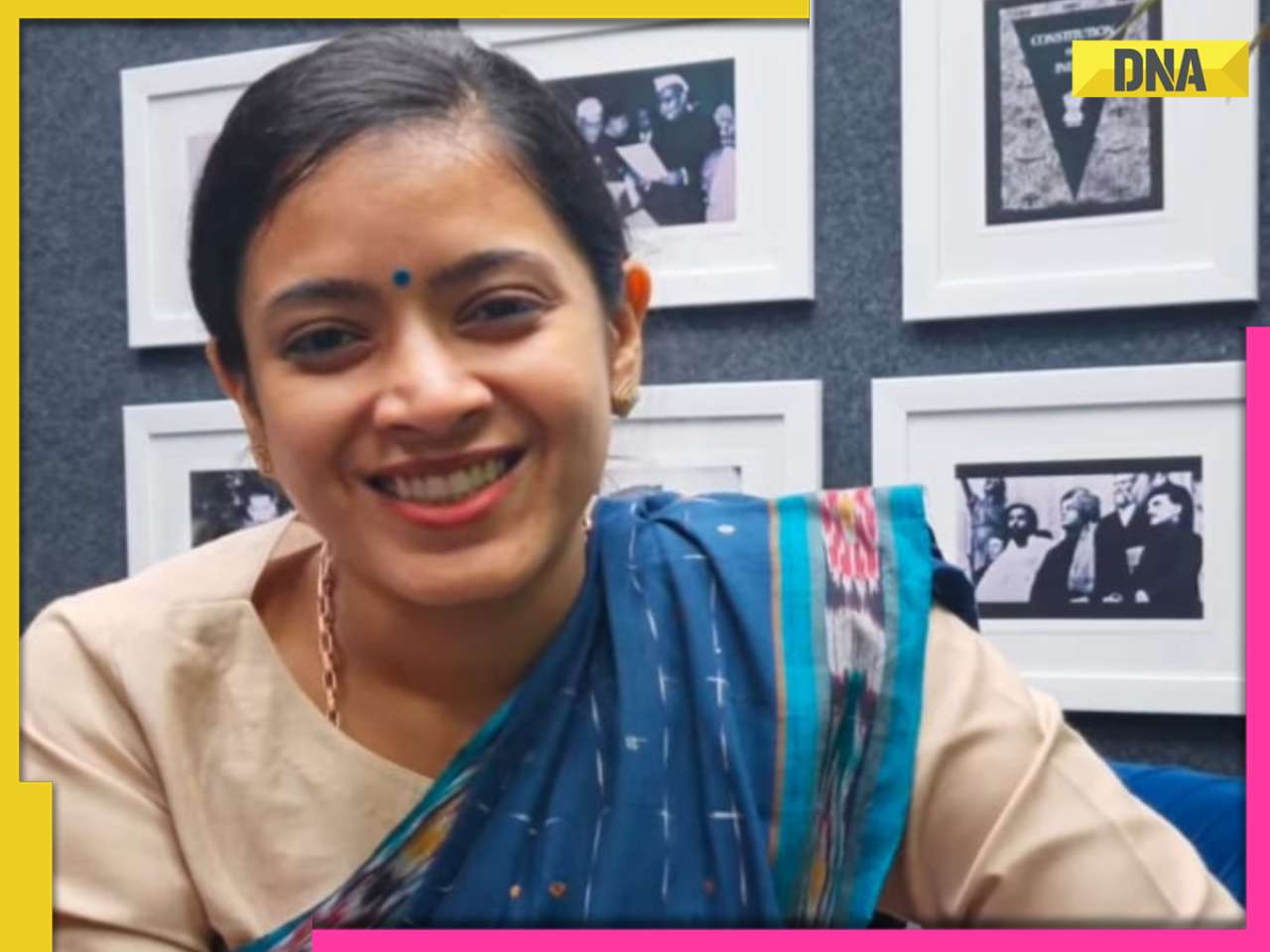
















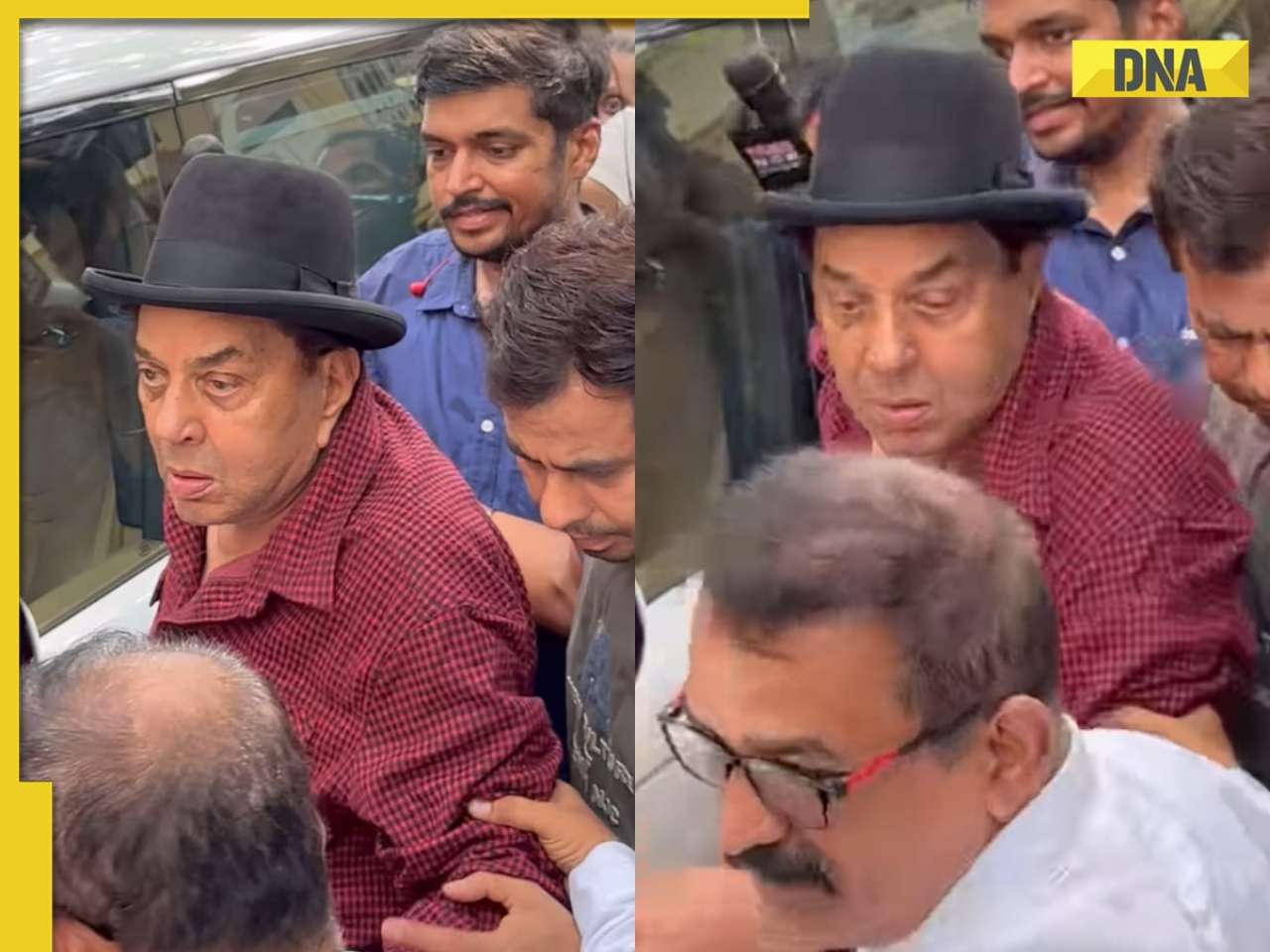


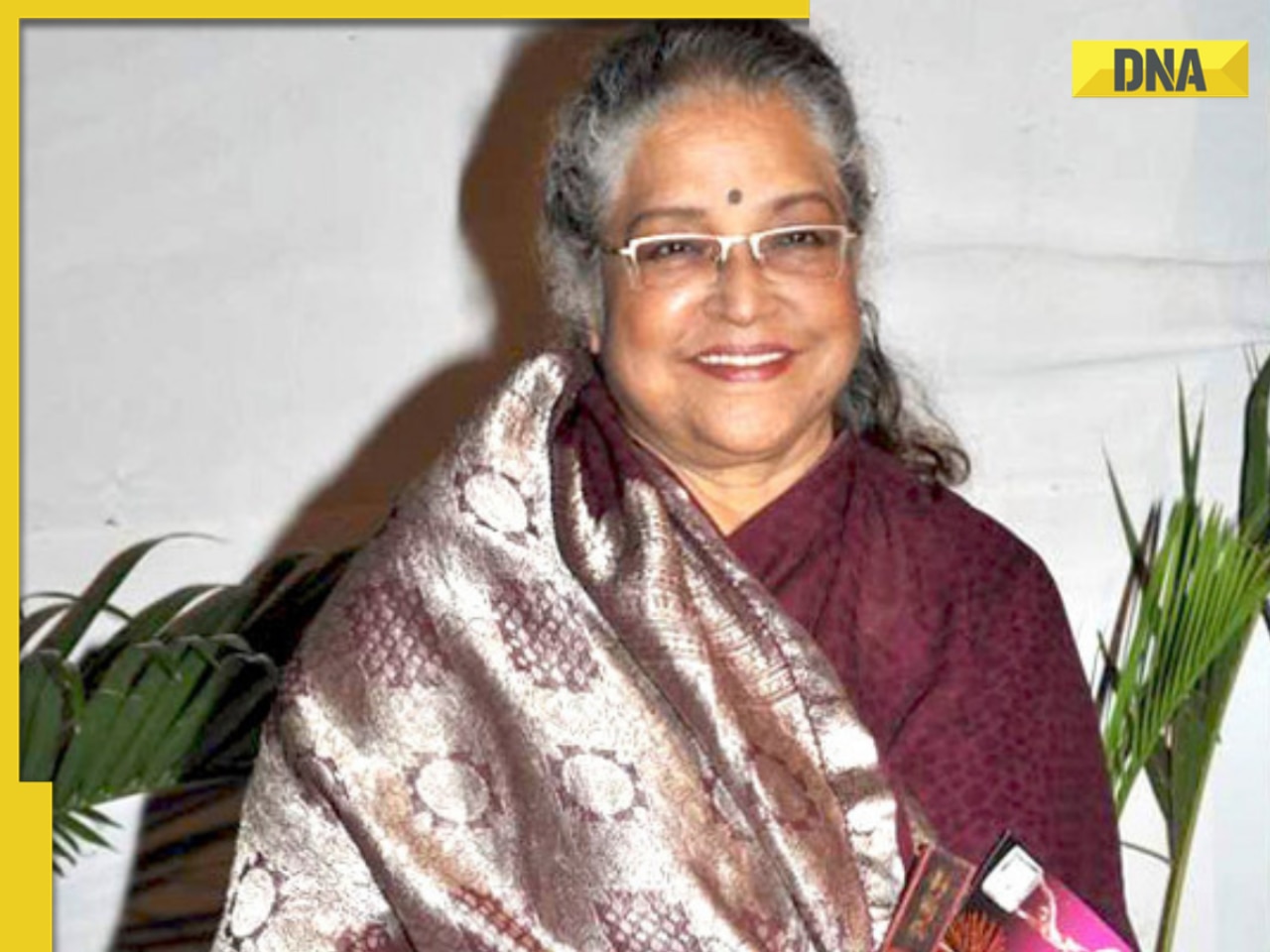

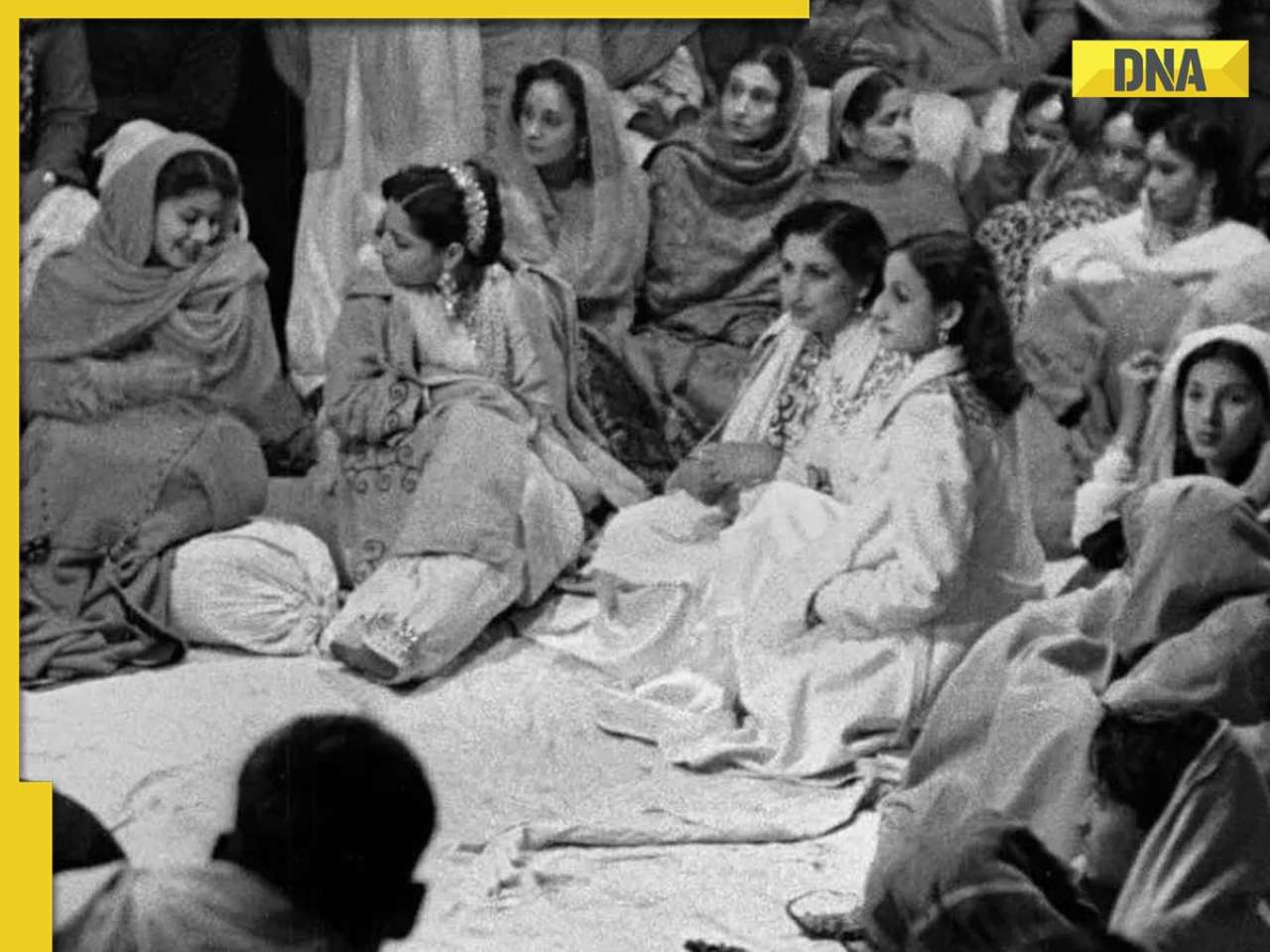









)
)
)
)
)
)